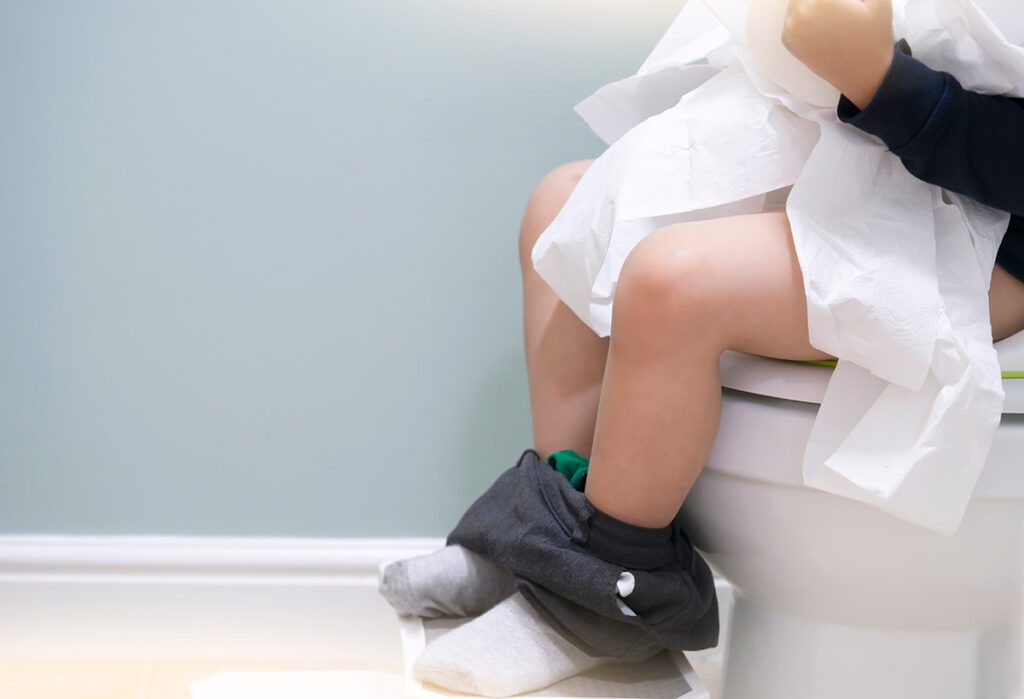- Locally Owned & Operated since 2013
Toilet Training Policy & Guidelines

We understand that toilet training can be one of the most stressful parts of preparing your child for preschool—especially for parents of three-year-olds. Please know that you’re not alone, and our team is here to support you and your child with care, patience, and experience. Over the years, we’ve helped many children make this important transition successfully. Also, keep in mind that our 3 year old program is only 2 days per week for about 2.5 – 3 hrs.
While we do require children to be toilet trained before starting preschool, we recognize that every child develops at their own pace. Occasional accidents, especially during the first few weeks, are completely normal. Our goal is to support children with kindness and consistency as they build confidence and independence in the classroom.
General Guidelines:
Encouraging Independence:
Our educators will encourage and support independence in toileting. However, during the initial transition period (typically the first month), our staff will assist children who need help with clothing, reminders, or support using the toilet. You may be surprised how quickly children gain independence in the preschool setting!Communication is Key:
One of the first signs of readiness is your child being able to communicate when they need to use the toilet. Educators will provide regular verbal reminders throughout the day to support children.Pull-Ups & Preparedness:
If your child is not yet fully independent or has frequent accidents, we may recommend the use of pull-ups to avoid disruptions and support your child’s comfort.
In this case, we will work with you to create a plan that encourages a smooth transition to full toilet independence. Pull-ups would be in case of accidents, not relied upon as a toilet training substitute.Clothing Matters:
Please dress your child in easy-to-remove clothing—avoiding overalls, belts, or tight jeans.
Accidents: What to Expect
Minor Accidents:
For small or occasional accidents, our team will support your child with care and discretion. You may receive a note or a brief update at pick-up.Bowel Movement Accidents:
If your child has a bowel movement accident during class, we will notify you immediately and request that you or a designated caregiver arrive promptly to assist your child and either take them home or change them in our bathroom. Staff are not permitted to clean fecal accidents due to health and safety regulations.Repeated Accidents:
If a child is having frequent toileting accidents, we will schedule a meeting with you to discuss strategies and support. If toileting readiness continues to be a concern and hinders your child’s participation or classroom hygiene, we may recommend a temporary break from the program to focus on training at home. This is always a last resort after collaborative efforts have been made.- In rare cases where toileting accidents are ongoing and we are experiencing difficulty due to a lack of cooperation or follow-through from home, a supplemental fee may apply to cover extra staffing and cleaning needs. We always aim to work with families and consider this only when necessary.
What You Can Expect From Us
A Supportive Start:
During the first month of school, as your child settles into a new routine, our teachers will provide gentle reminders, encouragement, and assistance as needed. This transition period is when many children show remarkable growth—often becoming more independent than parents expect.Encouraging Communication:
A key part of toilet readiness is your child being able to let us know when they need to use the bathroom. Our teachers will offer regular reminders throughout the day to support success, but self-awareness and communication are essential.When Pull-Ups Are Recommended:
If a child is not quite ready for consistent, independent toileting, we may recommend the short-term use of pull-ups to minimize accidents and maintain a positive classroom experience. Our staff will work closely with you to create a plan that gently moves your child toward independence. Please note that pull-ups are not a toilet training replacement, but more of a transitional strategy.Please note: Pull-ups are not intended as a long-term replacement for toilet training, but rather as a short-term, transitional tool to support children who are nearly ready for independence. However, a soiled pull-up can still cause discomfort for the child and be disruptive to the classroom environment, so we encourage families to use them only when truly needed—and always with a clear plan to phase them out.
Clothing That Supports Independence:
Please dress your child in easy-to-remove clothing (avoiding overalls, belts, and tight pants). Practicing at home with buttons, zippers, or snaps helps children gain confidence and avoid accidents.
We’re in This Together
Our team is experienced in helping children succeed with toilet independence, and we truly care about making this a positive, empowering experience for your child. With consistent routines at home and at school—and open communication—we’ve seen incredible progress.
Thank you for trusting us to be part of this important journey with your child.


